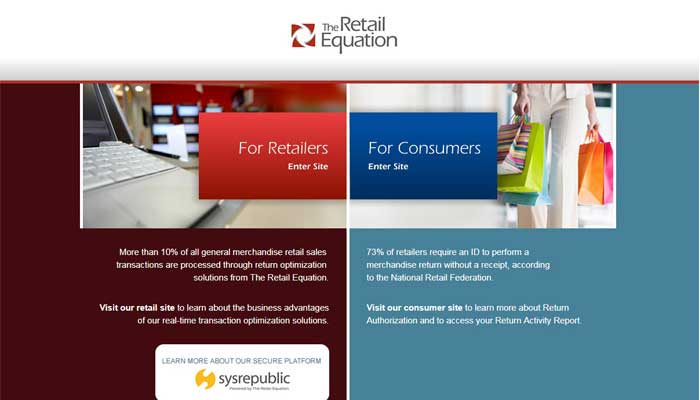As a merchant account provider, we know it’s not just chargebacks that can get a merchant in trouble with their acquiring bank; too many returns can be damaging also. So when we read in the Wall Street Journal this week about a handful of major retailers that have been using a third party to track consumers return behavior, we gave a subtle cheer. We believe this is the start of something: Merchants fighting back against fraudulent and excessive returns.
E-commerce and brick and mortar businesses have been burdened by the fraud epidemic in the form of bogus chargebacks, return fraud and/or friendly fraud – instances of which are growing year over year. Frankly, we shouldn’t be surprised in the least – all retailers, not just the big ones, need to protect themselves. Lately we’ve seen several subtle signs that merchants and the card issuers have had enough.
Some retailers have had enough. Here are 3 recent events in payments signaling a shift in return and refund tolerance.
1. Everyone is talking about The Retail Equation
What is the industry that is hampered most by chargeback fraud?
Without question, it is the electronics industry. When we read the Wall Street Journal story, it identified how retail electronics giant Best Buy recently partnered with The Retail Equation (which has since merged with Sysrepublic and is now called Apriss Retail), a firm that monitors customer return behaviors and abuses (other large retailers have since been discovered as current or former clients of The Retail Equation). It makes perfect sense.
We’re taking issue with the Journal’s headline, however: How Your Returns Are Used Against You at Best Buy, Other Retailers. We get that the Journal needs a catchy headline to get readers to click. As a merchant account provider, however, we’d have given a headline such as ‘Are you a serial return abuser? Know that you’re being watched,’ because of what we’ve seen as far as chargeback and return abuse.
Bravo to Best Buy and the other retailers. It’s good that they’re fighting back.
2. Visa’s crackdown on chargebacks
Recently we blogged about changes in chargeback disputes that Visa is implementing on Apr. 15:
- Reason codes condensed into four categories called dispute conditions
- Elimination of ‘Transaction Not Recognized’
- Merchant response window from 45 days to 30, then eventually 20
The announcement marked the third time in little over two years that Visa has made significant amendments to its handling of chargebacks. In December 2015, the card issuing giant announced it was reducing its chargeback threshold from 200 chargebacks per month or 2 percent of sales to 100 per month or 1 percent of sales.
Visa followed with an announcement a year later that it was implementing a ‘pre-monitoring program’ for merchants who consistently hovered at or above 75 chargebacks per month/0.75 of monthly sales.
Merchants have no other alternative but to become better business people; namely, to fight chargebacks and sharpen customer service skills. As a merchant account provider, we can assist with this.
3. Change in L.L. Bean Return Policy
L.L. Bean, it’s hub located about an hour north of our home office in Portsmouth, NH, USA, used to have a terrific return policy in which their products were reasonably guaranteed for life. It was a rather open-ended policy that was based on good faith. In early February, citing a “small but growing number of customers has been interpreting our guarantee well beyond its original intent,” L.L. Bean changed its return policy.
Translated, consumers took full advantage of L.L. Bean’s good faith policy, many fraudulently, like hoarding all the L.L. Bean products one could find, even if they weren’t the original owner of such, and returning them for cash or store credit. Now, L.L. Bean will accept returns no more than a year from purchase – and consumers need to show proof of purchase. The retailer did add it would work with consumers “to reach a fair solution if the product is defective in any way.”
It’s sad, but L.L. Bean’s change in return policy signals new attitudes in e-commerce and retail climate. We empathize with L.L. Bean.
There is a downside
We can hear the backlash:
- Good-natured consumers will be wrongly targeted
- Some will see it as an invasion of privacy
- With the proper documents, consumers should be able to make returns wherever, whenever
These are all valid points, particularly Nos. 1 and 2. We specifically like L.L. Bean’s policy change where it states it will attempt to reach a fair solution. Though it might be seen as a grey area, it sends the message that it will, at the very least, listen to consumer cases.
As a merchant account provider, we strongly advise merchants to make their return/refund policies clear, easy to read and prominent on their websites.
Are you a merchant account provider? We are curious about your thoughts on retailers using companies such as The Retail Equation. Please leave your comment below.


